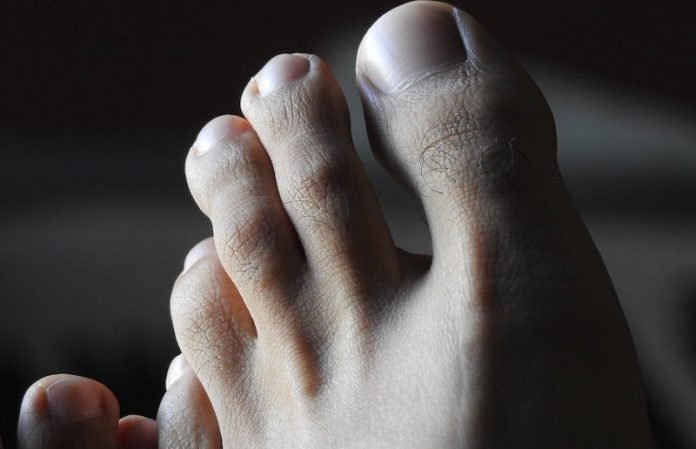
Gout is a type of inflammatory arthritis that causes pain and swelling in your joints, usually as flares that last for a week or two, and then resolve.
Gout flares often begin in your big toe or a lower limb. Gout happens when high levels of serum urate build up in your body, which can then form needle-shaped crystals in and around the joint.
This leads to inflammation and arthritis of the joint. When the body makes too much urate, or removes too little, urate levels build up in the body.
However, many people with high levels of serum urate will not develop gout.
There are many things you can do to help manage gout.
You can make some lifestyle changes to help you have fewer gout flares and manage your symptoms, such as:
Losing weight. If you are overweight or obese, losing weight through a reduced calorie diet and increased exercise helps reduce urate levels, which can help stop or lower the number of flares you have.
Making diet changes to help reduce blood urate levels and gout flares, such as:
Drinking fewer alcoholic beverages. This includes nonalcoholic beer.
Avoiding drinks that have high-fructose corn syrup, such as soda.
Avoiding red meats and organ meats (liver, kidney, tongue, and sweetbreads) that are higher in purines and may increase the risk for other health conditions.
Avoiding seafood, such as shellfish (shrimp and lobster), sardines, and anchovies.
Following the Dietary Approaches to Stop Hypertension (DASH) eating plan. This diet is particularly helpful for many gout patients who also have high blood pressure.
The DASH eating plan can help improve high blood pressure and may help lower blood urate levels. By lowering urate levels, this plan may help prevent gout flares. The DASH eating plan includes:
Eating plenty of vegetables, fruits, and whole grains.
Eating low-fat or fat-free dairy products, poultry, and oils.
Limiting foods high in saturated fats.
Limiting sugar-sweetened foods and drinks.
When you have a gout flare, you can do the following to help reduce symptoms from the flare:
Applying ice to the affected area to help reduce swelling and pain.
Elevating the affected limb, if possible, to help reduce swelling.
Resting the affected joint.
When gout is associated with frequent flares or tophi, lifestyle changes alone are not sufficient to manage gout and medications to lower urate levels in your blood are the mainstay for managing gout.
Taking the medications prescribed for this purpose by your doctor regularly is the key to preventing gout flares from occurring and preventing or reducing tophi.
Nevertheless, maintaining a healthy weight and diet are also important to help lower the risk of cardiovascular complications, which are common among gout patients.
Always talk with your doctor before making any changes to your diet or medications.
If you care about gout, please read studies about a new way to provide pain relief without side effects, and drug that treats gout could also battle COVID-19.
For more information about health, please see recent studies about flower that may advance the treatment of chronic pain, and results showing this therapy can effectively treat pain, depression and anxiety.
Source: National Institute of Arthritis and Musculoskeletal and Skin Diseases (NIAMS).



